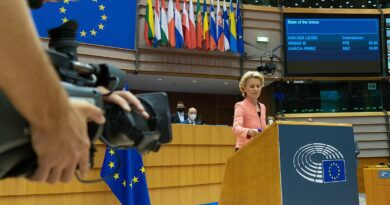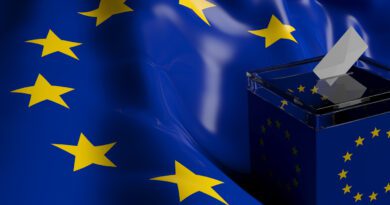Germany’s imperial vision of EU federalization
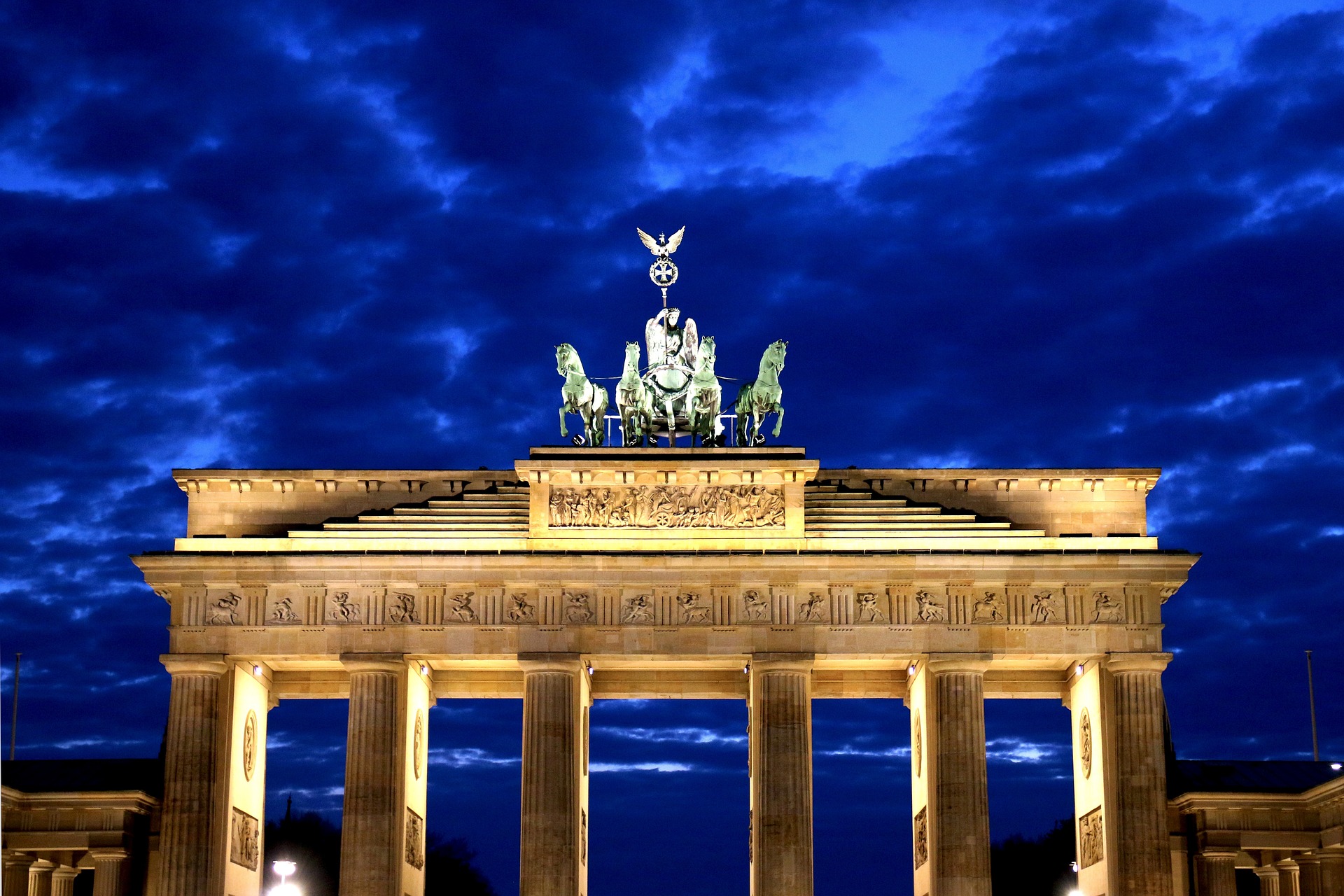
In its political tradition Germany does not have the ability to establish international relations based on respect and mutual equality. On the contrary, the typical model of thinking for them is the imperial model.
Michał Sopiński, Ph.D.
Göttingen, October 23rd, 2021. Ombudsman Adam Bodnar is about to receive the Dialogue Prize awarded by the Federal Association of German-Polish Societies. Nothing promises more excitement, nor is anyone particularly surprised by the name of the laureate. Germans love to reward people who represent their point of view abroad, as evidenced, for example, by Donald Tusk who was awarded the Charlemagne Prize. However, something happens during the ceremony that catches the attention of all the media in Poland. In his speech, Bodnar mentions that Polish legal culture and the post-1989 changes were inspired by German legal thought. Seemingly nothing controversial, but the follow-up is crucial. According to Bodnar, since Germany is Poland’s mentor, it therefore bears actual responsibility for Poland. “As in the parable from ‘The Little Prince’, if you tame an animal, you cannot abandon it later,” said Bodnar, referring to the book written by French writer and poet Antoine de Saint-Exupéry, in which “taming” is mentioned by a fox met by the Little Prince.
The metaphor of “taming” is interesting, although not true. For in “The Little Prince” it is a parable about the birth of a friendship between a boy and a fox, not about subjugation. And it is precisely the relationship of subordination – the relationship of pupil and mentor – that, according to the Germans, naturally links their country to countries like Poland.
Germany is not and cannot be a “Little Prince”. And not because it was a German military pilot who shot down Major Antoine de Saint-Exupéry’s Allied plane during World War II, but because in its political tradition Germany does not have the ability to establish international relations based on respect and mutual equality. On the contrary, the typical model of thinking for them is the imperial model. Therefore, Germany is definitely closer to Emperor Palpatine than to “The Little Prince”.
European superstate
In “Star Wars”, the Galactic Empire was founded on the ruins of the Republic, which at the end of its existence was a creature torn by internal conflicts, which caused dissatisfaction among its community. It was then that Grand Chancellor Palpatine, exploiting and skillfully stoking imperial tendencies, seized power and established himself as Emperor.
Of course, Ursula von der Leyen is far from the dark figure that was Darth Sidious, while Olaf Scholz is not the new Count Dooku. But today’s European Union seems to be in a similar political quagmire as the Republic in the “Star Wars” universe. And in the face of the EU’s crisis, one of the most frequently discussed proposals for a way out is that of federalization. In this context, the most commonly discussed solution is the replacement of the existing concept of a “Europe of Homelands” with a new political form – a European superstate with a center of power located in Brussels. The vision of federalization assumes that the most important political and economic issues would no longer be decided by democratically elected governments of the member states, but by a pan-European government of Eurocrats, whose mandate to exercise power would not be democratically legitimized, but would be based on the mechanism of co-optation resulting from a peculiar technocratic meritocracy in the Brussels edition. However, perhaps the vision of the new EU pushed by Germany is not a concept of a European superstate at all, but a new form of revival of an empire – the Holy Roman Empire of the German Nation – or, translating into modern language, the European Union of the German Nation? For empires are something different from nation-states. And the imperial model is definitely closer to German traditions than the superstate model that is being talked about in the corridors of Brussels. And, after all, it is well known today that it is none other than Germany that sets the tone for the politics of the entire European Union.
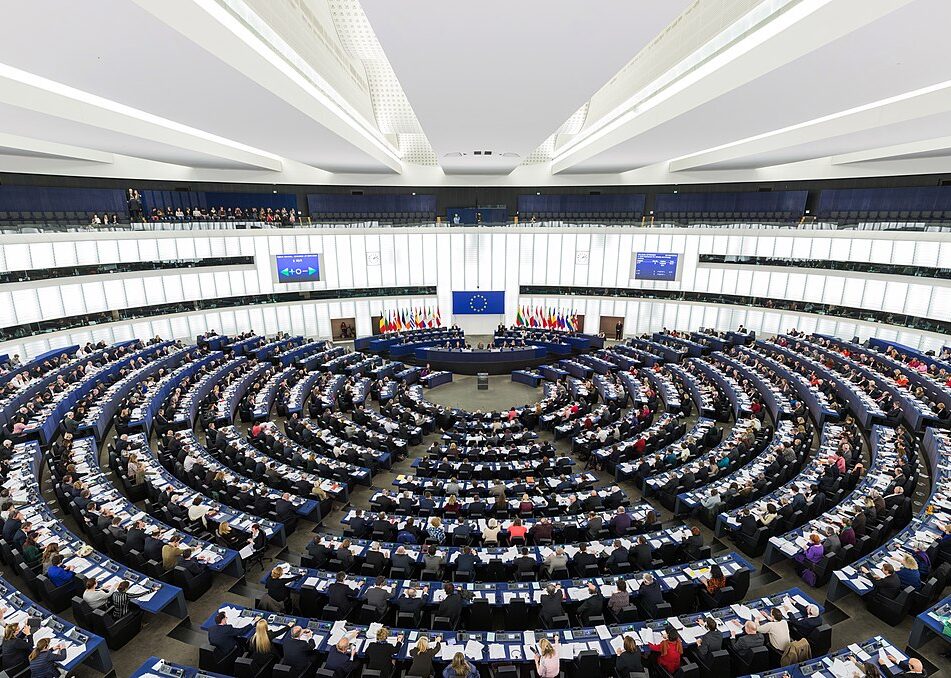
After all, it was the current German Chancellor Olaf Scholz who recently wrote a text to the Frankfurter Allgemeine Zeitung – in July 2022 – titled. “Die EU muss zu einem geopolitischen Akteur werden,” where he bluntly stated that the era of independent European states is over and it is now up to the European Union to become a self-contained entity on the international stage. This is echoed in a famous saying of Henry Kissinger, who pointed out the problem that occurs when Americans want to “make a phone call to Europe” and the other side, instead of one central power center that would immediately answer the call, individual European countries are literally snatching the phone out of each other’s hands, forcing the Americans to a long wait. This is why Olaf Scholz categorically calls for the European Union to be compact and united.
The new German ambassador to Poland, Thomas Bagger, also spoke in a similar vein to Olaf Scholz in one of the first interviews he gave after taking office. In a piece published in “Rzeczpospolita” titled “Germany sees the world as the Poles do,” the ambassador strongly emphasized that Germany’s priority is to move away from the policy of unanimity on key issues for the EU, and thus to block veto submissions by EU member states in foreign policy. And yet, the veto right is a very important instrument that has so far leveled the hegemony of the Old Union countries, primarily Germany and France. The majority rule favors the large, most populous member states, harming the interests of the countries admitted after 2004. Therefore, according to the Polish government and the United Right camp – and above all Solidarna Polska – the abolition of the unanimity rule would seriously harm Poland’s sovereignty and reduce its influence on the functioning of the Community. Thus, it is clear as day that Germany, which is a richer and more populous country than Poland, has a completely different approach on this issue. According to Bagger, “(…) in the general opinion of the German political class, European integration is the best thing that could have happened to us in history. It is so important that giving up the veto is a necessary investment. Hence the debate over what needs to be done to make this Union work. And it will not function with thirty-odd members if each of them retains the right to veto.”
Such words cease to be surprising, however, when one recalls that Germany’s current ruling coalition of SPD, Greens, and FPD has explicitly indicated the demand for a European federation into its coalition agreement.
And indeed, in today’s Germany, there seems to be a consensus on the federalization of the EU regardless of political option. Thus, the subject of discussion is not the answer to the question “Should the EU become a federation?” but “How and to what extent should the EU become a federation?”. This is best seen in the programs of the German political parties that make up the government in Germany today.
In their 2021 election program, the Greens wanted to expand the monetary union into a social union. They demanded EU investment in climate protection, digitization, research, and education activities. They demanded increased EU activity in the foreign policy sphere and the partial or complete abolition of the blocking minority mechanism and forcing member states to fully apply the Charter of Fundamental Rights. They fully supported the conditionality mechanism and want its active application against authoritarian member states. They also demanded that all states accede to the European Prosecutor’s Office under threat of withdrawal of European funds.
The liberal Free Democratic Party (FDP), on the other hand, advocated for further enlargement of the EU, strengthening its institutions, and demanded further deepening of integration up to the creation of a federal state with a European constitution, pan-European EP electoral lists and direct election of the EC president. The liberals also believe that defense and security policies should be developed at the EU level above all.
The Social Democratic Party (SPD), to which Chancellor Olaf Scholz belongs, supports the rule of law (conditionality) mechanism and the use of sanctions against disobedient member states. In its election program, it also wanted the introduction of Agenda 2030, the change of the Stability and Development Pact into a Sustainable Development Pact so that the EU would also be more of a fiscal and social union. It also called for the search for new sources of own resources (among them – taxation of “digital companies,” CO2 emissions, and emissions trading).
It also demanded a sharp increase in the share of renewable energy in the energy mix, the implementation of the Paris Agreement commitments, the EU becoming zero-carbon by 2050 at the latest, greater labor rights, stricter environmental legislation, the democratization of trade policy by allowing trade unions and civil society to have a say and increasing the role of the EP, the establishment of a European Health Union, and finally the introduction of a European minimum wage. Civil society cooperation is to be financed by a special fund for democracy and the protection of the rule of law, according to the SPD. In addition, SPD politicians are demanding that the EU ratify the Istanbul Convention. They want the expansion of European cooperation in defense and security, as well as demilitarization, and in foreign policy the integration of the Western Balkans and the adoption by the EU of the European Convention on Human Rights on a party basis.
Currently, every event on the international arena that can be given European prominence – from the COVID-19 pandemic and the war in Ukraine, to the energy and migration crisis, climate policy, and the tense relations between Brussels and some member states, such as Poland and Hungary – presents an opportunity for German politicians to raise the demand for federalization as a possible remedy. In the view of the German political class, the creation of a federation would be the best remedy for the successive problems plaguing the European Union.
The German concept of empire
For authors from the German cultural circle, presenting an imperial vision of a united Europe is a natural consequence of knowing their own political tradition, which includes the legacy of the Sacrum Imperium Romanum, otherwise the Old Reich (962-1806), the Second German Reich in the form of the German Empire (1871-1918), and finally the Third Reich of Nazi Germany (1933-1945).
A completely different perspective is presented on the subject by the French, who are also now pushing for the federalization of the European Union, but based on the model of a centralized, unified European superstate. This is not a new concept, it was already promoted by French socialist Jacques Delors, for whom the European Union at the time of the Maastricht Treaty appeared as an unidentified but nevertheless separate political object. Therefore, according to the French, it is necessary to “run forward” and transfer full sovereignty to the level of the European Union. The French – brought up in the purity of concepts of the Enlightenment and the tradition of indivisible sovereignty, even a globalist like President Emmanuel Macron – deeply believe in the concept of a superstate and see it on the French model with the center of power located, none other than in Brussels, from where, after all, Paris is quite close…
However, the choice of the French concept of a superstate is problematic insofar as it builds up permanent tensions on the EU-nation-state line in terms of the transfer of powers or signs of sovereignty. This can be perfectly seen, for example, in the resistance against such attempts to take sovereignty away from EU member states that are put up today by Hungary and Poland. The German concept of empire, on the other hand, makes it possible to bypass this problem. And therein lies its greatest value, as well as its greatest danger. This is because the Germans, over the course of history, have developed a concept of “divided sovereignty,” which presupposes a rather indefinite relationship between a central authority – a kind of center, as postmodernists would say – and a local authority governing the periphery of the empire. Indeed, what binds the empire together and keeps it in check is the center’s ability to use informal means of influence and leverage over even the most remote periphery.
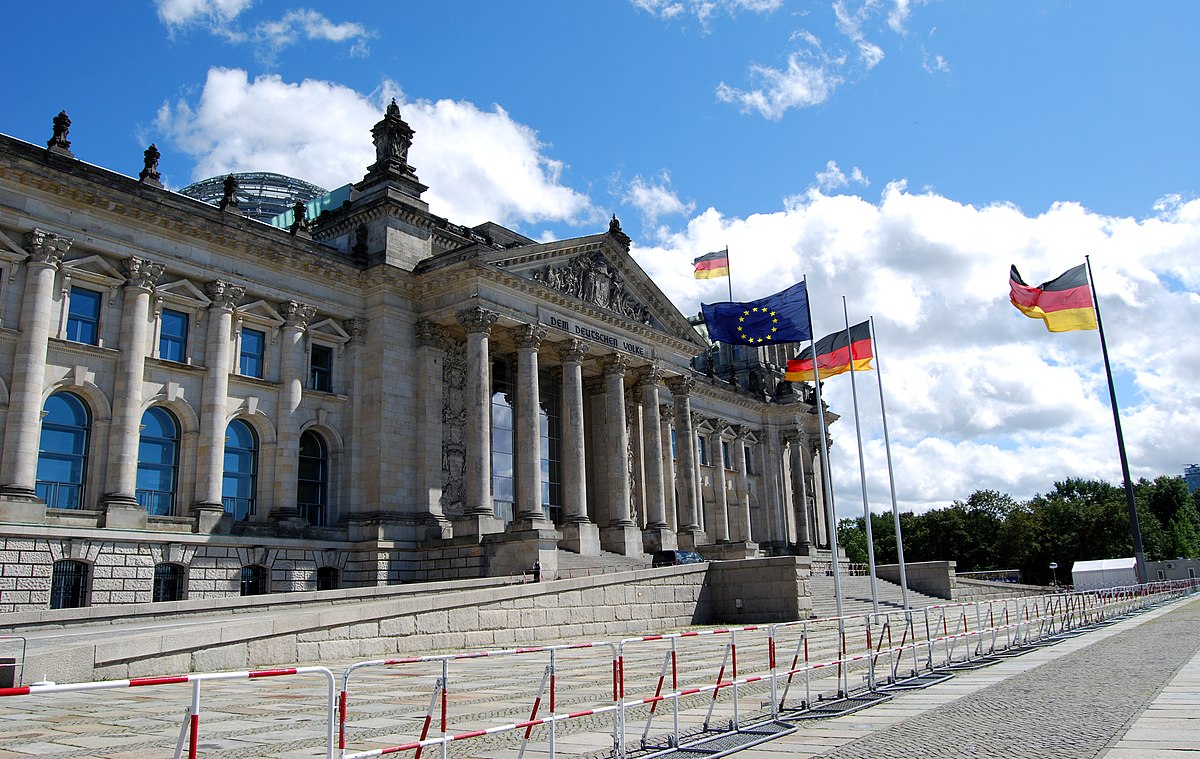
The difference between a nation-state and an empire is that a state is a unified political creation (the famous triad: sovereignty-territory-nation) in which all regions have the same status (legal, cultural, economic) and the borders of the state separate it from another, albeit equal, nation-state. An empire, on the other hand, is a peculiar amalgam of many territories at different levels of economic development with distinct cultural character and different legal status, for which the borders are the dividing line between order and chaos and barbarism, and at the same time are fluid, since the imperial model always implies the conquest or incorporation of foreign territories into the empire’s framework as part of the mission to “civilize” their inhabitants, since they are not equal to the inhabitants of the empire. Another difference between a nation-state and an empire is the difference in causality. While nation-states fit into a certain order and structure consisting of a number of equal states, empires are not limited in their causality, as they are the ones who can independently create a certain order and be its guarantor at the same time. Relations between states are necessarily symmetrical and based on cooperation or rivalry, while the empire’s relations with territories beyond its borders are always asymmetrical, as they are not relations between equals.
“Europe as an Empire”
In his 2007 book “Europa jako imperium” (“Europe as an Empire”), Professor Jan Zielonka – a Polish-British lawyer and political scientist from Oxford University – wrote that as early as 2004 the European Union, after admitting Central European countries into its ranks, became a de facto empire resembling the model of the Sacrum Imperium Romanum, or Holy Empire of the German Nation. It is worth noting that the process of European integration is largely based on the method of accomplished facts – especially in the area of extending EU powers through the jurisprudence of the CJEU – in order to best redistribute capital and services within the common economic market. This is not a method other than imperial thinking in accordance with the principle of divide and conquer.
Arguments for the structural similarity of the EU – especially – to the German imperial model can be found in abundance. For example, the fact that the EU encompasses the territory of almost all of Europe and is characterized by multi-nationality and multiculturalism, as well as many rival centers of power, while simultaneously recognizing the supremacy of the center (Brussels) over each other. In addition, each component of the EU is at a slightly different level of integration, with some countries having adopted a common currency and being in the Schengen area, which is essentially full integration, and some having the status of only non-Schengen peripheral countries with a separate currency. Finally, also the mission of the European Union today, which is to promote and defend the so-called European values listed in Article 2 of the TEU, is in keeping with the policies characteristic of empires whose goal was to civilize barbarians. What differentiates the current EU from the imperial Second German Reich, however, is the EU principle of unanimity instead of majority rule in the European Council – the functional equivalent of the Bundesrat – and the lack of a common army at the EU level. Nevertheless, the trend is clear, as is the direction of the further turn in German policy. Germany is now lobbying for the abolition of the veto enjoyed by EU members, with the next step being a common European army and the abolition of the armies of individual nation-states.
And since Germany sees the European Union as an empire, and itself as its center – the center of power – it is no wonder that for years it has regarded only the imperial Russia under Vladimir Putin as the only superpower and partner worthy of a business relationship. That’s why Germany defined its interests in contrast to those of the Central and Eastern European countries, treating them as far-flung fringes of the EU empire – a kind of periphery – that is, a space to be exploited, the profits from which it can share with the Russian empire in good cooperation. The vision of profit, building bigger and stronger economic connections, conquering new markets and building an economy of benefits (including political ones) at the expense of European solidarity was a geopolitical and strategic priority for Germany. After all, this was what had to be explained by the promotion of Nord Stream I and II, which made Europe dependent on Russian gas…
The war in Ukraine has curbed this imperial cooperation between Germany and Russia over the heads of peripheral countries.
The question is, for how long?
Dr. Michał Sopiński is a lawyer, university lecturer, pro-rector for development of the Academy of Justice.


